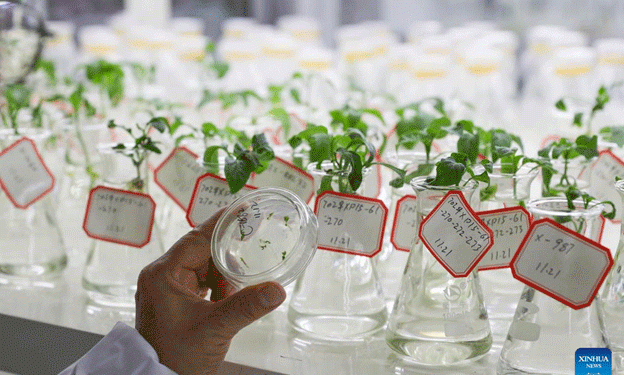Hunan Province, located in central China, is known for its large-scale pepper production, particularly in varieties that are crucial to both domestic markets and international exports. In recent years, the province has embraced cutting-edge technologies, especially the application of smart greenhouses, to enhance pepper cultivation.
The use of smart greenhouses has become increasingly significant as the demand for more efficient, sustainable farming practices rises. These greenhouses integrate a range of technological innovations, such as automated climate control, artificial intelligence, and sensor networks, which provide farmers with real-time data and control over their crop environment. This allows for precise regulation of temperature, humidity, light, and soil moisture, optimizing conditions for pepper plants to thrive while minimizing resource usage.
At the forefront of this initiative is the Hunan Xiangyan Seed Industry Co., Ltd., located in Changsha, which has established a biological breeding center equipped with smart greenhouse technology. This facility plays a key role in advancing pepper breeding techniques, enhancing the resilience of crops, and increasing overall productivity. By combining traditional farming knowledge with the latest advancements in agricultural technology, Hunan is set to redefine the future of pepper cultivation.
Benefits of Smart Greenhouses in Pepper Farming
The adoption of smart greenhouses in Hunan’s pepper industry offers several distinct advantages:
- Increased Efficiency: Smart greenhouses enable precise control over environmental factors, allowing for optimized growth conditions year-round. This control reduces the risk of crop loss due to weather fluctuations, providing a more stable and predictable harvest cycle.
- Resource Conservation: Through automated systems, water and energy usage are significantly reduced. Smart irrigation systems ensure that pepper plants receive the right amount of water, preventing waste and improving sustainability. Additionally, climate control features help minimize energy consumption by adjusting lighting and heating needs based on real-time weather data.
- Higher Yields and Quality: With improved growing conditions, pepper plants can grow more efficiently, leading to higher yields and better quality crops. Smart greenhouses also enable the growth of peppers in areas where traditional farming might not have been viable due to unfavorable climates.
- Reduced Pesticide Usage: The integration of pest monitoring and control systems within these greenhouses helps to minimize the use of chemical pesticides. By using natural pest control methods and carefully monitoring plant health, the need for chemical intervention is reduced, leading to healthier crops and a more sustainable farming environment.
Looking to the Future: Smart Greenhouses in the Broader Agriculture Landscape
Hunan’s commitment to expanding the use of smart greenhouses is part of a larger trend across China and beyond, where the agricultural sector is increasingly adopting high-tech solutions. These advancements not only boost production efficiency but also address the pressing environmental concerns of modern farming, including water scarcity, soil depletion, and pesticide overuse.
As smart greenhouse technology becomes more widespread, it is likely to see applications in other areas of agriculture, such as fruit and vegetable farming, as well as in controlled-environment agriculture (CEA) for herbs and medicinal plants. Moreover, the data collected from these systems can provide invaluable insights into optimizing crop production, making it an essential tool for researchers and farmers alike.
In Hunan, the integration of smart technology into pepper farming is expected to drive economic growth in the region while contributing to the sustainability of Chinese agriculture. With more investment in research and development, these technologies will likely expand into other crops, positioning China as a leader in the global shift toward high-tech, sustainable agriculture.
A Sustainable Future for Pepper Farming in Hunan
The use of smart greenhouses in Hunan’s pepper cultivation industry is a transformative step toward more sustainable and efficient farming. By leveraging modern technology, farmers can reduce their environmental footprint, optimize yields, and ensure the quality of their crops. As the adoption of these technologies grows, Hunan is poised to be a leader in the global agricultural innovation landscape.
With the continued development of smart farming techniques, the future of pepper cultivation in Hunan looks promising, offering a model for other agricultural regions worldwide to follow.











